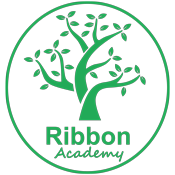Rather than focusing solely on what we learn, it also places importance on how and where we learn. These memorable experiences enable us to put our learning into context by understanding how it transfers to life beyond the classroom, and also appreciating how the skills acquired can be brought back to the classroom to support other areas of the curriculum.
Learning in a variety of environments not only raises achievement, but also promotes independence, organisation, problem solving, communication and teamwork skills. We are giving children not only an education, but also the tools to become a well-rounded adult. In an age where global warming, environmental education and sustainability are becoming ever more critical, children must be able to learn from and understand their environment, as well as their responsibility to protect it.
Ribbon also acknowledges and supports the fact that time spent in the outdoors and specifically playing in the outdoors, is a major factor in improving children’s well-being and mental health. Better play means happier children. Happier children mean a more positive attitude to school, more effective lessons, and core skills development.
Provision
Our innovative team are constantly striving to adapt and improve our school grounds. On each of the playgrounds we have two large loose parts sheds, a performance and role play area and wheeled carts. One of our artificial turfed areas houses an outdoor gym, while another provides a quiet space complete with games. Our MUGA and two large fields allow for team games, with climbing equipment around both. Ribbon Early Years have a vast outdoor space equipped with a wide range of apparatus and provocations, and we are fortunate to have three additional outdoor classrooms that are accessible across the site. Forest Schools sessions take place in our wildlife garden, and the polytunnel houses a variety of fruit and vegetables. Other exciting projects are continually happening as we respond to the interests of the children.
Our curriculum:
The Early Years Curriculum makes great use of learning in the outdoors as a vehicle for learning. Much time is spent outdoors during “play to learn” time, during which the children have free flow access to a large outdoor space. They are given the opportunity to experience different seasons and weather conditions. All areas of the curriculum are taught to some extent in the outdoor classroom, and the children are encouraged to develop a sense of wonder and excitement about being outside. There are many opportunities to explore both the immediate locality, and further afield in the local area. During “Muddy Monday” and “Forest Friday” sessions in Reception and nursery respectively, the children are given time in the school’s wildlife garden, accessing forest schools activities and philosophies. Year 1 continue to have access to both the Early Years garden and Year 1 outdoor spaces during continuous provision. They also enjoy “Teamwork Tuesday” afternoons, where the classes take part in forest schools, sustainability and conservation lessons, largely based outside. In Years 2-6, outdoor lessons link specifically to the curriculum. However, much emphasis is also placed on personal growth by providing exciting experiences which promote teamwork, leadership, independence, communication and organisation.
OPAL
At Ribbon we believe that play is essential for physical, emotional, social, spiritual and intellectual development. In a time where outdoor play environments and opportunities are on the decline, the school grounds provide a crucial place for children to experience self-initiated play. Ribbon is an OPAL school (Outdoor Play And Learning) and provides exciting play opportunities in accordance with The Charter for Children’s Play produced by Play England. These opportunities include loose parts, problem solving, gross and fine motor skill development, team games, risk taking, role play and performing.
Passports for Life
Giving young people the opportunity to try new things and develop new skills can be hugely beneficial. It can help children to grow in confidence, expand their understanding of the world around them, or introduce a hobby or passion that could last for years to come. This is why Ribbon have launched “Passports for Life” for our children in Reception to Year 6. Each child will be offered a menu of 15 exciting things they can complete each term, either at home or at school. These activities range from curriculum driven experiences, to fun life lessons.
Residential Experiences, Trips and Visits
All year groups take part in a minimum of two off site educational visits per term, all closely linked to curriculum topics and skills. This helps bring an element of “wow” to our curriculum, by giving children the opportunity to learn from experts in their field, learn in context, and see a rich array of places and meet a wider variety of people. In Reception, children are encouraged to develop a sense of independence through extended school days and visits. A sleepover in the school hall takes place in Year 1, and an overnight stay in tents on the school field at the end of Year 2, which forms an important foundation for all future residential experiences throughout Key Stage 2. Residentials in Key Stage 2 take place further afield, and over a longer period, and with an increasingly demanding itinerary.


